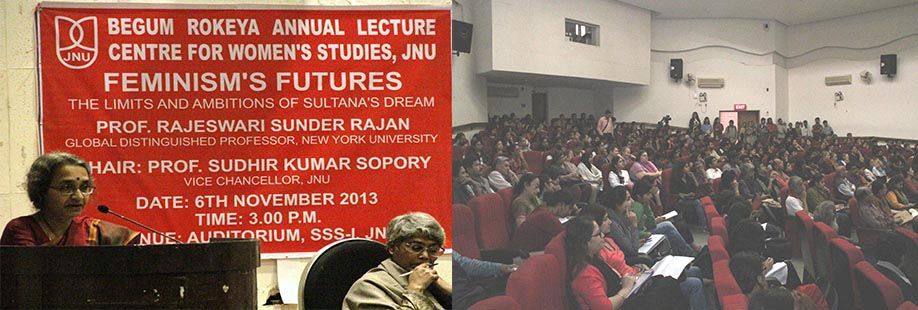Centre for Women's Studies
Courses offered in Winter Semester 2025
Centre for Women's Studies (CWS), JNU, seeks to study questions of gender in an interdisciplinary and comparative framework, thereby providing the space for creating a vibrant community of feminist academics, students, activists and artists concerned with issues of gender, sexuality and wider issues of power in society. Women's Studies in India emerged out of the conjunction of such diverse forces as the women's and democratic struggles, as well as state initiatives that critically examined the status of women in the country. The past three decades have witnessed the influence of these trends within academia, leading to path breaking feminist research in different disciplines, particularly in the social sciences and humanities. The growth of Women's Studies Centres/ Programmes in different Universities (and some autonomous research institutions), all over the country has demonstrated recognition of the issues that have been highlighted by the women's movement and feminist research over the past many years..
History: The Centre was launched in 2000 when Prof. Utsa Patnaik, the then Dean, along with Prof. Zoya Hasan and others established the Women’s Studies Programme (WSP) with UGC funding in the School of Social Sciences. The Programme, an integral part of the School of Social Sciences, was conceived of as a distinct space for engaging questions relating to women and gender, both in teaching, and research. In addition to faculty members, WSP has had, until 2013, a Professor of the School appointed as its Director on a rotational basis, to co-ordinate the overall functioning of the Programme. Professors Zoya Hasan (CPS), Jayati Ghosh (CESP), Tanika Sarkar (CHS), Maitrayee Chaudhuri (CSSS), Saraswati Raju (CSRD), and Kumkum Roy (CHS) have all been associated with the Programme as its Directors and have helped to give it a distinctive, interdisciplinary, character. In 2013, once the WSP became a full Centre of the School of Social Sciences, Prof. Shefali Jha (CPS) was appointed as its first Chairperson. The CWS currently has five faculty members and is in the process of expansion. Click for more....


